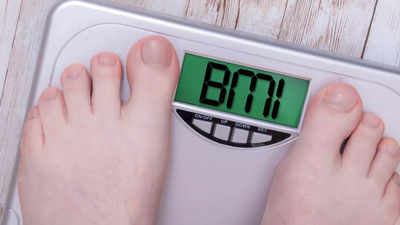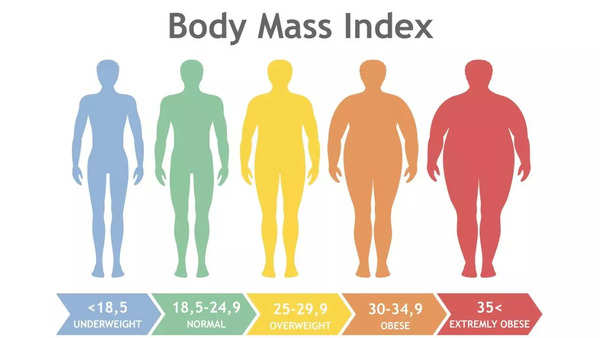Welcome To Latest IND >> Fastest World News
A recent report published in The Lancet Diabetes & Endocrinology journal has sparked discussion on obesity. The researchers say some people with obesity can maintain normal organ function and overall health, even in the long term, whereas others display signs and symptoms of severe illness here and now. It also shines a spotlight on BMI being an inaccurate measure of a person’s fitness.
Very muscular people like athletes may have a high BMI but not much fat. Similarly, people with healthy BMI may have a high body percentage which can put even the so-called thin people at risk of chronic diseases like diabetes, heart disease, and high cholesterol.
There is a term to define people who have a normal BMI but high body fat –
skinny fat
. However, in medical parlance, it is referred to as “
normal weight obesity
“. Let’s understand more about being thin yet obese.
What is normal weight obesity?
Having a normal BMI (Body Mass Index) but a
high body fat percentage
is a condition known as ‘normal weight obesity.’ This occurs when your weight seems healthy, but your body contains more fat than it should. It can increase your risk of developing serious health issues like diabetes, heart disease, and high blood pressure, even if you do not appear overweight.
How to know if you have high body fat?
BMI unlike popularly believed isn’t the perfect measure to assess your well-being. It is also important to determine the body fat percentage.
“You can do that by using methods such as bioelectrical impedance scales, skinfold measurements, or advanced scans like DEXA. When you have a high body fat, you may suffer from persistent fatigue, reduced muscle strength, or changes in how your clothes fit,” says Dr Pawan Kumar Goyal, Senior Director – Internal Medicine, Fortis Hospital, Shalimar Bagh.
“BMI does not accurately reflect body weight. Actually. it doesn’t differentiate between lean body mass and body fat. If you have a high muscle mass your weight might be higher than expected even if your BMI is normal.
BMI only considers height and weight, not body composition. You might have a higher percentage of body fat particularly visceral fat which can increase health risks. Also, people with higher bone density might weigh more due to increased weight of their bones,” says Esha Wadhwa, Dietetics, BLK MAX Super Speciality Hospital.
Steps to correct it
Holistic changes are the way to lose body fat effectively. It is important to make the right lifestyle changes from the right diet, exercise to fixing sleep.
Dr Goyal shares things to do to burn body fat:
Strength training: It is an effective way to address high body fat. Exercises like weightlifting, resistance band workouts, or bodyweight exercises such as push-ups and squats help build muscle, which improves your ability to burn fat. Increasing your overall physical activity is equally important. Engaging in activities like brisk walking, cycling, or swimming for at least 150 minutes a week can significantly improve your body composition.
Balanced diet: Making dietary changes is another essential step. A diet rich in lean proteins like chicken, fish, eggs, beans, and nuts supports muscle maintenance while reducing fat. Reducing the intake of processed foods, including sugary snacks and fried items, and replacing them with whole grains, fruits, vegetables, and healthy fats can also help. Staying hydrated is equally vital, as drinking enough water supports your metabolism and helps control hunger.
Get enough sleep: This plays a significant role in managing body fat. Aim for seven to eight hours of quality sleep each night to avoid hormonal imbalances that can lead to fat storage. Managing stress is also crucial, as high stress levels can promote fat accumulation, especially around the abdomen. Practicing relaxation techniques such as yoga, meditation, or deep breathing can help reduce stress.
Wadhwa shares some additional tips to get rid of the stubborn body fat:
Monitor and manage water retention: Keep an eye on your sodium intake, stay hydrated, and consider incorporating diuretic foods or herbs to help manage water retention.
Prioritize gut health: Focus on maintaining a balanced diet, staying hydrated, and managing stress to support gut health.
(Picture courtesy: iStock)
Why Some Partners Fear Commitment: Insights From Love Guru Rachna Khanna Singh
Latest IND

